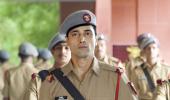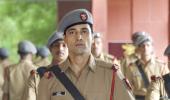'Doing this film has made me a lot less selfish.'
'When you understand the value of a man, who always said others first before himself, some of that ends up seeping into you.'
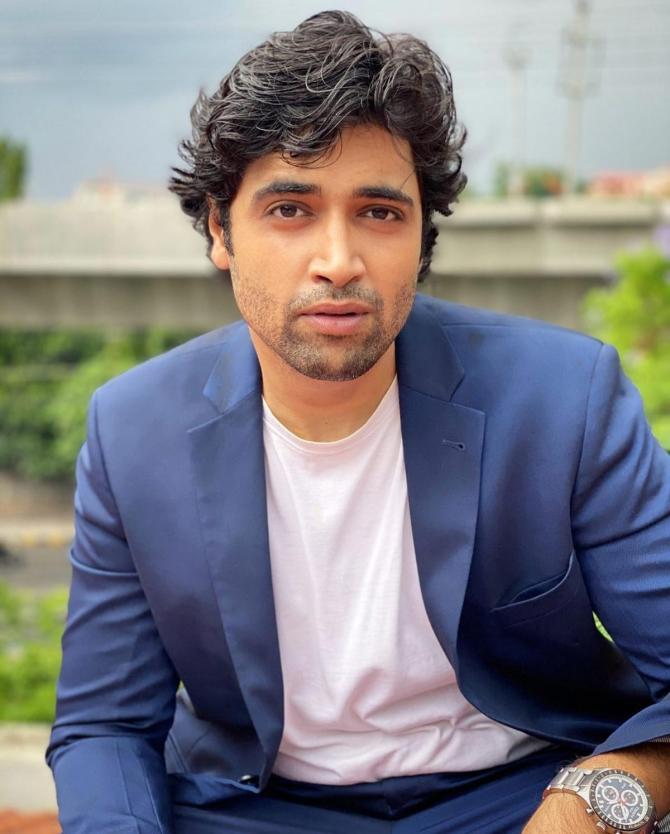
Actor Adivi Sesh, who plays Major Sandeep Unnikrishnan in the film Major, feels the late 26/11 hero is "today's freedom fighter".
The role, and the film, has made a deep impact on the actor's life, and he tells Rediff.com Senior Contributor Radhika Rajamani, "It changes you forever."
How has Director Sashi Kiran Tikka taken the film forward with your script?
I think we're opposites in terms of our temperaments.
I'm a live wire and I put that into my acting.
I'm temperamental.
I can get extremely happy and extremely angry within the hour.
He is the water to my fire.
Sashi is the stabilising energy on the set.
Together, it was a good mix.
This film is also produced by Namrata Shirodkar, Mahesh Babu's wife. How did this collaboration happen?
The film is produced by Sony, (Mahesh Babu and Namrata Shirodkar's) GMB Entertainment, and Anurag and Sharath.
Anurag-Sharath were speaking to Namrata one day and she was talking about how GMB wants to venture beyond Mahesh's acting assignments.
We ended up pitching the idea to Namrata garu and the most amazing thing happened is that both Mahesh and Namrata trusted what we could do, rather than a full script.
So they announced the film, brought Sony on board even before I had given a script.
Were you also involved in the selection of the cast, actors like Prakash Raj and Revathy, who play your parents in the film?
I do not know if it was a selection as much as just thinking of the ideal names.
Whenever we had to meet an actor, Sashi would explain the vision and I would narrate the scene.
I guess when it comes to someone like Revathy garu, you don't select her, you only hope that she selects you (laughs).
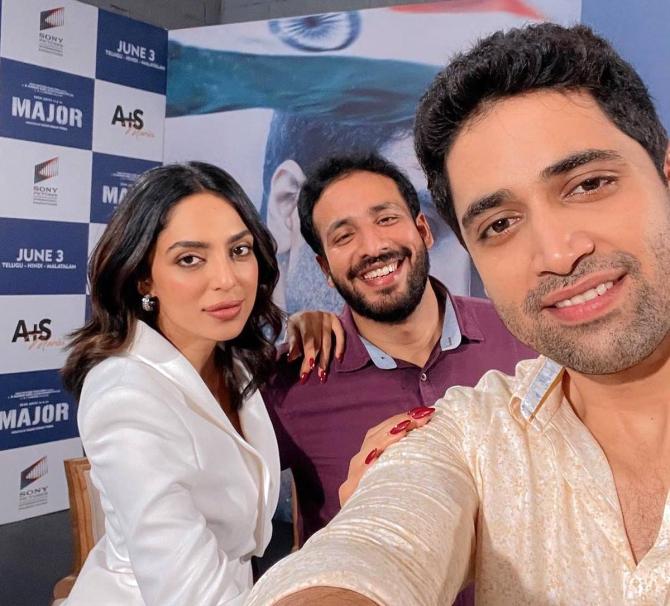
Did you shoot in the Taj Hotel at Mumbai?
No, because you're essentially talking about death and destruction in a functioning hotel.
So we built eight sets and out of those, six were towards the Taj.
We also built a Gateway of India set, that huge courtyard, the road, the traffic...
This film is shot in Hindi and Telugu. How tough was it to shoot it twice?
It was extremely tough because you're essentially talking about 30 to 40 percent more work.
I wanted the Hindi audience to genuinely feel like they saw a Hindi film, the Telugu audience to feel like they saw a genuine Telugu film. So the treatment of each scene is very different.
Sometimes the punch line or the joke or the emotional line might come in the beginning of the scene for Hindi but will come at the end of the scene for Telugu. So it's not a translation as much as a reinterpretation for each line based on the cultural nuances and the rhythm of that scene.
The Malayalam version is dubbed from the Telugu version because they are closer in culture.
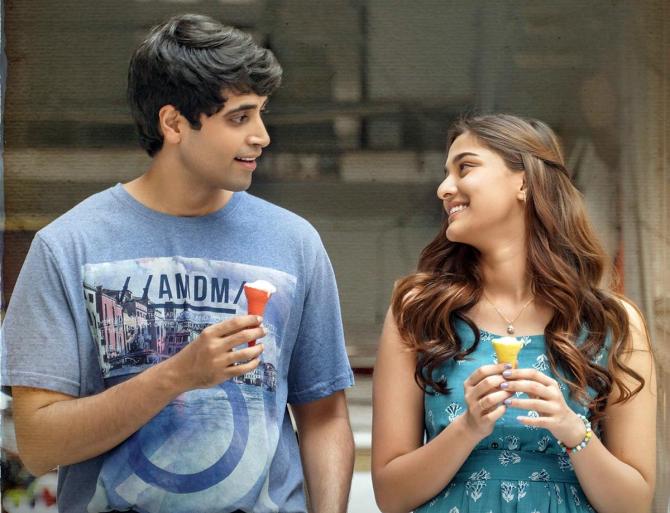
What have been the takeaways from doing this film?
I think doing this film has made me a lot less selfish.
When you understand the value of a man, who always said others first before himself, some of that ends up seeping into you.
One direct consequence of it was how I reacted to the second and third wave.
I ended up going out of my way to do something for people I've never met, not because I'm some great guy, but because it was almost like Major Sandeep's voice saying, 'Come on, are you just going to read and let it be? Or you going to do something?'
I can only say that he is in me a little bit.
It's changed me forever and made me more empathetic.
Empathy is probably the greatest quality I've gained from this film.
Has it been tough shedding the role?
I don't think it's shedding because it's like it is in you now. It changes you forever.
You're a different colour now because of it.

